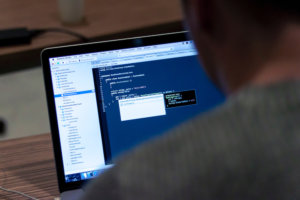Mark Karpeles denies all claims against him in US case
Karpeles denies that he was the sole controlling force behind Mt. Gox, but admits that, from time to time, he was aware of bugs in the Mt. Gox system.

Less than a month after the Illinois Northern District Court nixed a motion to dismiss by Mark Karpeles in a case brought by ex-customers of MtGox, he has responded to the complaint against him.
On April 2, 2019, Karpeles submitted his Answer and Defenses to the plaintiffs’ Fourth Amended Class Action Complaint and Demand for Jury Trial.
The case stems from the demise of the Mt. Gox Bitcoin Exchange and the loss of hundreds of millions of dollars worth of its users’ bitcoins and cash. Karpeles, who owned and ran Mt. Gox, is accused of being responsible for the loss of more than $400 million from users on the Exchange through either gross negligence or outright theft. The plaintiffs bring suit on behalf of a class of similarly situated individuals to recover their resulting losses from Karpeles. The Class covers all persons in the United States who had bitcoins or money stored with Mt. Gox on February 24, 2014.
In his answer, Karpeles denies any factual allegations in this paragraph, denies any liability, denies that the plaintiffs are entitled to any damages or relief, and denies that a class can be certified in this case.
Karpeles admits that he was the Chief Executive officer of Mt. Gox KK and Tibanne. However, he denies that he directed the drafting and dissemination of Mt. Gox’s public statements and representations, including any in the Terms of Use. Karpeles denies that he directed statements made through Mt. Gox’s customer services department. Karpeles also denies that he handled Mt. Gox’s accounting.
The defendant denies that he was the sole controlling force behind Mt. Gox. Karpeles admits that, from time to time, he was aware of bugs in the Mt. Gox system, which Mt. Gox promptly resolved.
Some of Karpeles’s statements are quite confusing. For instance, in his answer, he denies that he represented to the public and to Mt. Gox users that the withdrawal issues were temporary, that user assets were safe, denies that he assured users that problems were being dealt with and that there was no cause for alarm, and denies that he informed users that withdrawal issues were temporary and due to a change in Mt. Gox’s banking system.
However, Karpeles also says that he admits that Mt. Gox stated to the public and to Mt. Gox users that the withdrawal issues were temporary and that user assets were safe, admits that Mt. Gox, through the Mt. Gox online Support Desk, assured users that problems were being dealt with and that there was no cause for alarm, and admits that Mt. Gox informed users that withdrawal issues were temporary and due to a change in Mt. Gox’s banking system.
The core argument here appears to be that Karpeles is not Mt. Gox. So, he repeatedly uses phrases like “MtGox stated”, rather than “Karpeles stated”.
Karpeles admits that, on February 7, 2014, Mt. Gox halted customers’ ability to withdraw Bitcoins from the Mt. Gox website, stating that it was investigating a “bug” or “technical malfunction” linked to the way Bitcoin worked. Karpeles denies that, on February 7, 2014, Mt. Gox halted customers’ ability to withdraw any other form of currency from the Mt. Gox website. Karpeles further admits that on or around February 10, 2014, Mt. Gox stated that it had detected “unusual activity” with respect to the Mt. Gox Bitcoin wallets and was investigating a technical issue, called “transaction malleability,” which the ability of third parties to manipulate certain transactions. Answering further, Karpeles admits that these issues were mentioned in Mt. Gox’s official chat on February 7, 2014. Karpeles admits that Mt. Gox stated that “MtGox will resume bitcoin withdrawals to outside wallets once the issue” had been addressed.
In the part of the document dedicated to Karpeles’ affirmative defenses, he repeats the arguments he already used in his motion to dismiss. Thus, he claims he cannot be sued in Illinois due to lack of personal jurisdiction.
Finally, he argues that, to the extent that the plaintiffs are paid in the Japanese civil rehabilitation proceedings for their bitcoins that form the basis of their claims, their claims are barred by the doctrine of payment. To the extent that the plaintiffs are paid in the Japanese civil rehabilitation proceedings for their bitcoins that form the basis of their claims, their claims are moot, Karpeles says.
The case continues at the Illinois Northern District Court.









